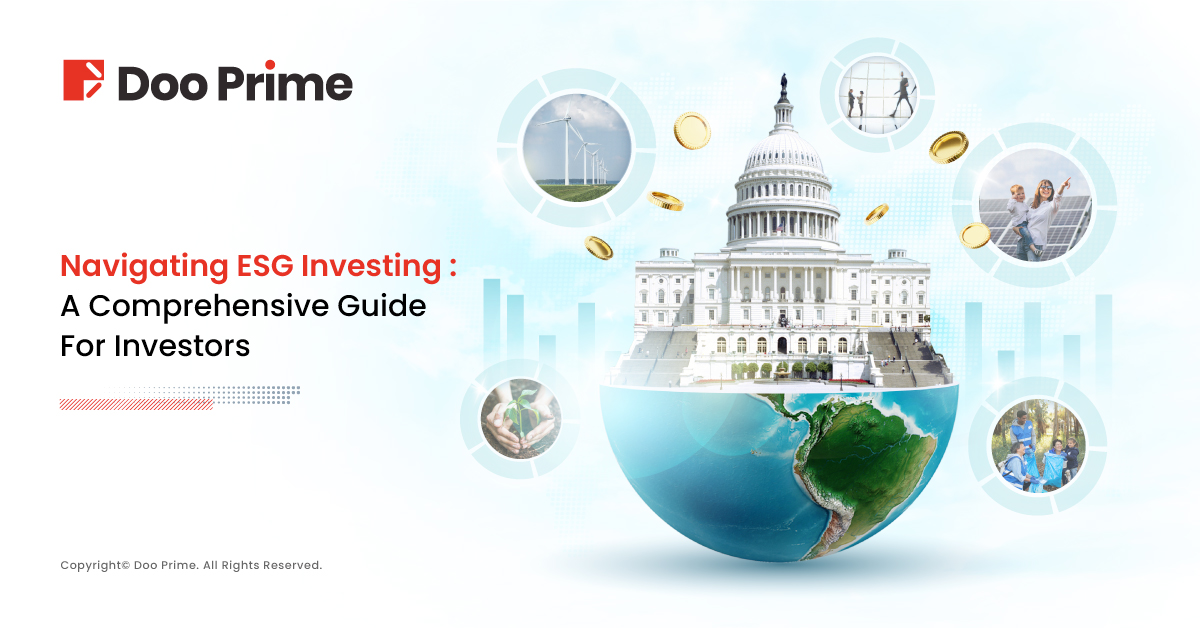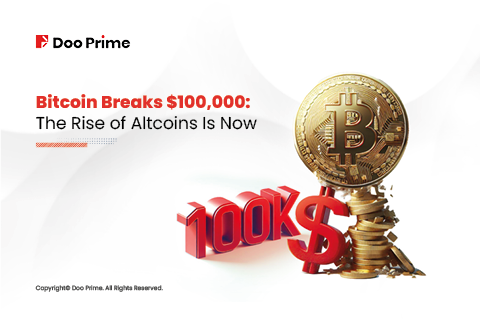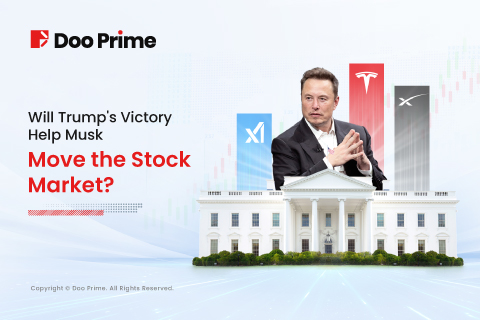
ESG investing has gained a lot of attention in recent years as investors seek to align their portfolios with their values and make a positive impact on society and the environment. ESG stands for environmental, social, and governance, and refers to a set of criteria that investors can use to evaluate the sustainability and ethical impact of their investments.
Despite its growing popularity, ESG investing has faced criticism from both ends of the political spectrum. Some on the right have called it “woke capitalism,” while some on the left have accused it of “greenwashing.” However, the majority of investors view ESG investing as a logical and sensible approach to investing that takes into account the long-term impact of their investments on society and the environment.
In this guide, we will explore the basics of ESG investing, including its definition, the benefits it offers, and the future of this growing field.

An Introduction To ESG Investing: What Is It And Why Is It Important?

ESG investing has gained increasing popularity among investors in recent years, as it allows them to align their investments with their values and principles. This approach takes into account environmental, social, and governance factors when evaluating the sustainability and ethical impact of investments.
One of the reasons for ESG’s acceptance among investors is its explicit alignment with the traditional investing goal of maximizing returns. In fact, the term “ESG” was co-created by a group of major financial institutions in a 2004 report jointly developed with the United Nations Global Compact, a voluntary corporate sustainability initiative.
By considering factors such as a company’s environmental impact, its social responsibility, and its governance practices, investors can make more informed decisions about which companies to invest in. This can help promote sustainable and ethical business practices, and encourage companies to be more transparent and accountable.

However, ESG investing is not without its challenges. One of the main challenges is the lack of standardization in the field, which can make it difficult for investors to compare different companies and make informed decisions. Critics argue that ESG investing can also be subjective and open to interpretation, leading to inconsistencies and bias.
Overall, ESG investing is an important tool for investors who want to align their investments with their values and make a positive impact on society and the environment. As more people become aware of the environmental and social impact of their investments, the demand for ESG investing is likely to continue to grow.
The Benefits Of ESG Investing: How Does It Differ From Traditional Investing, And What Are The Potential Returns?
ESG investing differs from traditional investing in several ways. Firstly, it takes into account a broader range of factors beyond just financial performance. This can help investors identify companies that are not only financially sound, but also sustainable and socially responsible.

Secondly, ESG investing can lead to better long-term returns and lower risk. A number of studies have shown that companies with strong ESG performance tend to outperform their peers in the long run, as they are better equipped to manage risks and capitalize on opportunities. In addition, companies that prioritize ESG factors are often more resilient in the face of crises, as they have strong governance structures and are more attuned to social and environmental trends.
Finally, ESG investing can help investors align their investments with their values and principles, which can be personally fulfilling and rewarding.
The Future Of ESG Investing: What Are The Trends And Developments That Are Shaping The Future Of ESG Investing, And How Can Investors Stay Ahead Of The Curve?
The future of ESG investing is bright, with a number of trends and developments shaping the field. One of the key trends is the rise of impact investing, which focuses on investing in companies and projects that have a positive social and environmental impact. Another trend is the growing importance of data and analytics, as investors seek to better measure and evaluate ESG performance.

To stay ahead of the curve in ESG investing, investors should focus on staying up-to-date with these trends and developments, and incorporating them into their investment strategies. This could involve working with an ESG specialist or using data analytics tools to evaluate companies’ ESG performance.
However, there are also some challenges that investors will need to navigate as ESG investing continues to evolve. One of the main challenges is the lack of standardization in the field, which can make it difficult to compare different companies and evaluate their ESG performance. Another challenge is the potential for “greenwashing,” where companies may make false or exaggerated claims about their ESG practices to attract investors.
To address these challenges, investors should look for companies that are transparent and accountable about their ESG practices, and consider using independent ESG ratings and research to evaluate performance. It is also important to be aware of the potential limitations of ESG data, and to use it in conjunction with other forms of analysis.
Case Studies: Examples Of ESG Investments And Their Impact On Companies And Society
To better understand the potential impact of ESG investing, let’s take a look at some real-world examples of ESG investments.

One notable example is the Norwegian Government Pension Fund Global, which is one of the largest sovereign wealth funds in the world. The fund has been a pioneer in ESG investing, and has been divesting from companies involved in activities such as tobacco and weapons production. The fund has also increased its investments in renewable energy, and has set a goal of reducing its carbon footprint by 40% by 2025. This has not only had a positive impact on the environment, but has also generated strong returns for the fund’s investors.
Another example is Unilever, a multinational consumer goods company that has made sustainability a key part of its business strategy. The company has set ambitious goals to reduce its environmental impact, such as reducing its greenhouse gas emissions by 50% and sourcing all of its agricultural raw materials sustainably by 2030. These efforts have not only helped the company reduce its environmental impact, but have also generated positive publicity and strengthened the company’s reputation.
As ESG investing gains traction, President Biden’s recent veto of a measure allowing retirement fund managers to consider environmental and social impacts when making investment decisions has drawn attention to the controversy surrounding ESG.
The Senate passed a bill that would prohibit retirement funds from considering environmental, social, and governance (ESG) factors when making investments.
This practice, which screens investments based on socially conscious factors, has become popular on Wall Street, but Republicans argue that it promotes “woke” politics rather than maximizing financial returns.
The House also passed a bill introduced by a Republican representative to block the Labor Department rule allowing fund managers to consider ESG practices for retirement plans.
This has led to a lawsuit by 25 Republican-led states, who argue that ESG provisions undermine key protections for retirement savings. However, proponents of the rule argue that ESG factors can impact profits and should be taken into account.
It is important to note that while no federal laws exist to ban state assets from being invested in ESG strategies, several Republican states have enacted their own laws prohibiting investments using social factors.
Ultimately, critics argue that ESG investing can influence public opinion and limit returns for retirees, but evidence shows otherwise. Despite efforts by conservative sponsors to dismantle ESG, it is increasingly becoming codified in regulations at both domestic and international levels.
The Evolving Landscape of ESG Investing

ESG investing has gained significant attention in recent years as investors increasingly consider the environmental, social, and governance impact of their investments.
While there are some who argue against ESG, evidence suggests that incorporating ESG criteria in investment decisions can generate strong returns while also contributing to a more sustainable and equitable world.
Real-world examples, such as the Norwegian Government Pension Fund Global, illustrate how ESG investments can have a positive impact on companies and society.
Despite efforts to limit ESG investing, both domestic and international regulations are increasingly recognizing the importance of ESG criteria in reporting and decision-making.
As the world continues to face global challenges such as climate change and social inequality, ESG investing is likely to play an increasingly important role in shaping the future of finance.
| About Doo Prime
Our Trading Products
Securities | Futures | Forex | Precious Metals | Commodities | Stock Indices
Doo Prime is an international pre-eminent online broker under Doo Group, which strives to provide professional investors with global CFD trading products in Securities, Futures, Forex, Precious Metals, Commodities, and Stock Indices. At present, Doo Prime is delivering the finest trading experience to more than 90,000 clients, with an average trading volume of more than USD 51.223 billion each month.
Doo Prime entities respectively holds the relevant financial regulatory licenses in Seychelles, Mauritius, and Vanuatu with operation centers in Dallas, Sydney, Singapore, Hong Kong, Dubai, Kuala Lumpur, and other regions.
With robust financial technology infrastructure, well-established partnerships, and an experienced technical team, Doo Prime boasts a safe and secure trading environment, competitive trading costs, as well as deposit and withdrawal methods that support 20+ different currencies. Doo Prime also incorporates 24/7 multilingual customer service and extremely fast trade execution via multiple industry-leading trading terminals such as MT4, MT5, TradingView, and Doo Prime InTrade, covering over 10,000 trading products.
Doo Prime’s vision and mission are to become a financial technology-focused broker, streamlining international global financial products investment.
For more information about Doo Prime, please contact us at:
Phone:
Europe : +44 11 3733 5199
Asia : +852 3704 4241
Asia – Singapore: +65 6011 1415
Asia – China : +86 400 8427 539
E-mail:
Technical Support: [email protected]
Account Manager: [email protected]
Forward-looking Statements
This article contains “forward-looking statements” and may be identified by the use of forward-looking terminology such as “anticipate”, “believe”, “continue”, “could”, “estimate”, “expect”, “hope”, “intend”, “may”, “might”, “plan”, “potential”, “predict”, “should”, or “will”, or other variations thereon or comparable terminology. However, the absence of such terminology does not mean that a statement is not forward-looking. In particular, statements about the expectations, beliefs, plans, objectives, assumptions, future events, or future performance of Doo Prime will be generally assumed as forward-looking statements.
Doo Prime has provided these forward-looking statements based on all current information available to Doo Prime and Doo Prime’s current expectations, assumptions, estimates, and projections. While Doo Prime believes these expectations, assumptions, estimations, and projections are reasonable, these forward-looking statements are only predictions and involve known and unknown risks and uncertainties, many of which are beyond Doo Prime’s control. Such risks and uncertainties may cause results, performance, or achievements materially different from those expressed or implied by the forward-looking statements.
Doo Prime does not provide any representation or warranty on the reliability, accuracy, or completeness of such statements. Doo Prime is not obliged to provide or release any updates or revisions to any forward-looking statements.
Risk Disclosure
Trading in financial instruments involves high risks due to the fluctuation in the value and prices of the underlying financial instruments. Due to the adverse and unpredictable market movements, large losses exceeding the investor’s initial investment could incur within a short period of time. The past performance of a financial instrument is not an indication of its future performance. Investments in certain services should be made on margin or leverage, where relatively small movements in trading prices may have a disproportionately large impact on the client’s investment and client should therefore be prepared to suffer significant losses when using such trading facilities.
Please make sure you read and fully understand the trading risks of the respective financial instrument before engaging in any transaction with Doo Prime’s trading platforms. You should seek independent professional advice if you do not understand any of the risks disclosed by us herein or any risk associated with the trade and investment of financial instruments. Please refer to Doo Prime’s Client Agreement and Risk Disclosure and Acknowledgement Notice to find out more.
Disclaimer
This information is addressed to the general public solely for information purposes and should not be taken as investment advice, recommendation, offer, or solicitation to buy or sell any financial instrument. The information displayed herein has been prepared without any reference or consideration to any particular recipient’s investment objectives or financial situation. Any references to the past performance of a financial instrument, index, or a packaged investment product shall not be taken as a reliable indicator of its future performance. Doo Prime and its holding company, affiliates, subsidiaries, associated companies, partners and their respective employees, make no representation or warranties to the information displayed and shall not be liable for any direct, indirect, special or consequential loss or damages incurred a result of any inaccuracies or incompleteness of the information provided, and any direct or indirect trading risks, profit, or loss arising from any individual’s or client’s investment.



